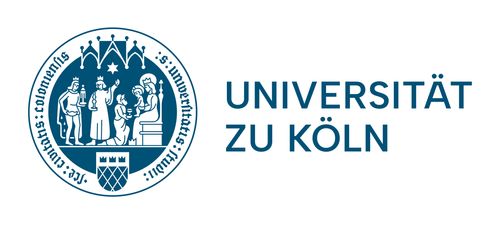Postdoc - Plant genomics and quantitative genetics (f/m/x) - Köln

Dein Job
Faculty of Mathematics and Natural Sciences
Postdoc - Plant genomics and quantitative genetics (f/m/x)
Institute for Plant Sciences/CEPLAS
We are one of the largest and oldest universities in Europe and one of the most important employers in our region. Our broad range of subjects, the dynamic development of our main research areas and our central location in Cologne make us attractive for students and researchers from around the world. We offer a wide range of career opportunities in science, technology, and administration.
The “Crop Evolution” group at the Institute for Plant Sciences and the Cluster of Excellence on Plant Sciences (CEPLAS) studies the evolution and adaptation of plants. We use population and quantitative genetics to understand how new traits evolve, how wild plants became crops and how these crops spread across the globe. Our main models are maize and amaranth. More on www.cropevolution.org.
The selected candidate will work on an ERC funded project, studying the origin of betalain pigments and their regulatory control.
YOUR TASKS
» Genomic analysis to understand the history of adaptive variation
» Multi-omics (including single cell) and quantitative genetic analysis
» Participate in the development of the project and contribute ideas
» Write and publish scientific articles and present results at conferences
» Participate in group and project meetings and discussions
WE OFFER
» A stimulating research environment in a highly motivated team
» Participation in cutting edge research
» A diverse working environment with equal opportunities
» Support in balancing work and family life
» Extensive advanced training opportunities
» Occupational health management offers
» Flexible working time models
The University of Cologne promotes equal opportunities and diversity. Women will be considered preferentially in accordance with the Equal Opportunities Act of North Rhine-Westphalia (Landesgleichstellungsgesetz – LGG NRW). We also expressly welcome applications from all suitable candidates regardless of their gender, nationality, ethnic and social origin, religion, disability, age, sexual orientation and identity.
The position is available immediatley on a full-time basis (39,83 hours per week). The position is to be filled for a fixed term until 31 December 2027. If the applicant meets the relevant wage requirements and personal qualifications, the salary is based on remuneration group 13 TV-L of the pay scale for the German public sector.
Please submit your application (without a photo), including proof of the required qualifications, online under: https://jobportal.uni-koeln.de.
The reference number is Wiss2511-17. The application deadline is 14 December 2025.
For further inquiries, please contact Professor Markus Stetter (m.stetter@uni-koeln.de) and take a look at our FAQs.
Dein Profil
YOUR PROFILE
» PhD in a relevant field (e.g., computational biology, evolutionary genetics, plant breeding)
» Background in population genetics, quantitative genetics, computational biology or equivalent
» Interest in evolutionary questions and plant research
» Experience with omics data analysis
» Computational skills (e.g.,knowledge in bash, R or Python)
» Excellent oral and written communication skills in English
Deine Benefits
Stellenmerkmale
Dein Beschäftigungsumfang
Vollzeit (befristet)
Dein Gehalt
E13
Dein Arbeitsplatz:
vor Ort
Dein Büro:
Raum Köln